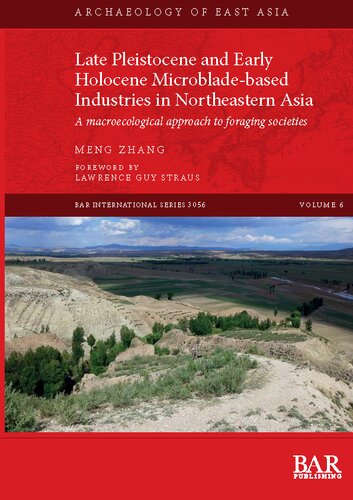

Most ebook files are in PDF format, so you can easily read them using various software such as Foxit Reader or directly on the Google Chrome browser.
Some ebook files are released by publishers in other formats such as .awz, .mobi, .epub, .fb2, etc. You may need to install specific software to read these formats on mobile/PC, such as Calibre.
Please read the tutorial at this link: https://ebookbell.com/faq
We offer FREE conversion to the popular formats you request; however, this may take some time. Therefore, right after payment, please email us, and we will try to provide the service as quickly as possible.
For some exceptional file formats or broken links (if any), please refrain from opening any disputes. Instead, email us first, and we will try to assist within a maximum of 6 hours.
EbookBell Team

0.0
0 reviewsThe rise and fall of microblade technology during the late Pleistocene and early Holocene is not only a part of the panorama of global microlithization, but also a key question linked to human adaptive change in the face of climate fluctuation. This monograph creatively uses Lewis Binford’s macroecological approach developed from his book Constructing Frames of Reference (2001) against both interglacial and glacial climate conditions, to provide an explanation of variation and change among late Pleistocene and early Holocene microblade-based industries in northeastern Asia. It uses six case studies to discuss two waves of cultural change linked with issues of the origin of microblade technology and the Palaeolithic to Neolithic transition. These cover the formation and convergence of microblade-based societies (MIS 3 to MIS 2), referring to case studies in Siberia and Northern China, and the development and ultimate divergence of microblade-based societies (MIS 2 to MIS 1), involving case studies in the Japanese Archipelago, Eastern Siberia, Northern China, and the Tibetan Plateau.